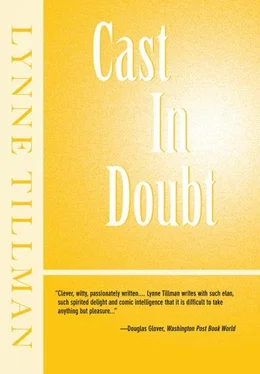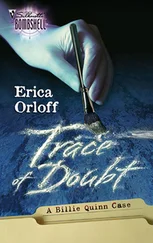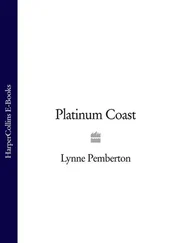They’re coming our way. It’s been ages since I’ve seen Stephen. Roger is coming over too. It’s a feast. I feel festive, ebullient. More drink. I call out, Wine for everyone, Christos.
Stephen sits down beside Helen. It is hard to believe that he was once a child movie star. His mother was Hungarian, I believe, his father terribly English and rich, but for some reason or other, Stephen was raised primarily in Rome. There a director cast him in a role and he quickly became a child actor, whose adorable looks were beloved by a nation that worships its bambini. The early attention did little good for Stephen, as he grew up surrounded either by doting nannies, a narcissistic mother, or film crews paid to pander to him. And what does a child know, father to the man.
My word, Stephen now — a sight to behold, a sorry sight. I can’t quite believe my eyes. How low a man can sink. Roger and Wallace are arguing about politics, so I needn’t join in. I can observe the scene.
Helen is rapt. Weird Stephen, in good form, is talking to her in a respectable way. He flails his arms every now and again, but is in most ways well behaved. English eccentrics are wonderfully odd. Even though he is completely mad, he still retains some of the manners of a gentleman. I hear bits of his monologue; it follows in a seemingly logical order. Perhaps he does make sense much of the time, but as I never see him, how would I know. He makes sense in the forest, with no one to hear him out, and we all judge him so harshly. I am ashamed of myself and turn to face Helen and him. They are blurry shapes. They are good people, I know this in my heart.
I listen wholeheartedly to Stephen, moving my chair closer to his to catch his every word. He has no money, as he has been cut off by his family, almost entirely; naturally they disapprove of the way he lives. He pushes his hair back — long, unruly hair — which exposes more of his face, though there’s nothing to be done with his beard. Helen takes my hand, she must know I’m drifting in and out of this world, and squeezes it every once in a while. Sweet Helen. Sad Stephen. The authorities cut off his electricity some months ago, and he lives in a house without light except from that of candles which he’s set about his place in tin cans. He’ll die by fire. I know it. I feel it. The house will go up in a second, and he will be destroyed, burned to death. No, asphyxiated. It seems inevitable.
An impish smile plays on Stephen’s lips. He is exuberant. He declares to Helen, as if exposing a great truth, his great truth, that he has discovered electricity, how important it is, how electricity is magic. He ecstatically enthuses on the power of Light and God, that electricity running through thin wires and cables is the lifeblood of our society. He’d never realized before the way that God was a part of everything, but seeing dots of electric light in houses around the world was proof of God’s power. His mother and father had tried to control him through the telephone, but that was not the fault of God or electricity. His daily life was once absorbed in switching lights on and off, and he rues the day he complained of that activity as simple repetition when in fact it was central to his life and all life. Now, without this routine, it’s as if he were doing penance. Lighting candles makes him wish he were Catholic but still he misses the radio, the voices that spoke to him and the world. The BBC, the BBC World Service, he can’t live without it. He bellows: I love electricity. I love electricity.
Roger, Wallace and the Dutchwoman laugh, first in horror, and then raucously, in morbid delight. Stephen looks about only to discover them laughing at him, staring at him, as at a comedian or worse. He grabs his book bag and shuffles off from the restaurant, walking in long angry strides around the harbor until he is well out of sight. The mirth dies a self-conscious death. Wallace explains that he wooed Stephen out of his ramshackle debacle of a house with the promise of a good dinner. Roger, ever the one to know more than anyone else, Roger insists that Stephen cribbed all of that from Nijinsky, and that he’s not mad at all. Just playing possum. Like Pound? Wallace goes on again. Roger notes sarcastically that even madness is unoriginal. I simply won’t hear any more of this, I think.
Wallace says that Stephen eats scraps these days. Roger harrumphs caustically. Poor Stephen, I declaim, and, in Roger’s direction, ask, have you no pity? I reach for my glass but can barely lift the drink to my mouth. And to think that, by comparison with Stephen, Wallace now seems sane. Roger bothers to respond only with, You’re drunk, Horace. Then he turns his chair around so that his back is to me. But where is Helen? She has disappeared. Has she run after our Nijinsky, our Stephen?
Yannis as usual has managed to appear from nowhere, like one of the Furies. He is begrudgingly at my side, but where has everyone else gone. Have I been talking aloud again or thinking to myself? Where is Helen? Yannis grabs my hand and pulls me out of the chair. He walks ahead of me, leaving me to putter along after him. A great rage wells in me. I want to strike him, to hurt him. I mutter something. He looks at me as a wounded animal might, but what have I done? I am infuriated by his reproach. I throw down some money, I throw it down on the ground in front of him. He turns again. There is on his face an expression of disgust so great that I must avert my gaze. Surely he cannot hate me that much. This is a dream, a poisoned vision.
A yacht named Viridiana docked in the harbor the other day, a sleek white sailing vessel off of which my friend Gwen alighted, sleepily. She met the owner in Iráklion and took up his offer to sail here with him — a French-Greek millionaire — and his wife, who’s just French, and assorted guests. Gwen tells me the vessel sleeps twelve, all in one bed, and I can’t decide whether or not she is joking. She remarks that I’ve been away from the States too long if I don’t know.
Gwen is in fine shape, thin and energetic, yet she somehow exudes, at the same time, a soigné world-weariness. while here, she announces, she will work only on her tan, and me. Then she laughs. Gwen hugs me, not too tightly, and mentions being beat but not a Beat, not ever, and later, something about missing the beat or the boat. I’m not sure. She talks very fast, she always, has. I’d almost forgotten that.
It’s a tonic to see her, smoking cigarettes, drinking coffee, running her tongue over her lips, patting her knee impatiently. Lulu — she calls me Lulu — you’re looking well for a beaten man. She is capable of using one word or metaphor all day long, in as many different ways as one could. Gwen views Yannis through her jaded eyes, and it is as if I can see him through them. I know she is suspicious of him and our arrangement, as she is naturally suspicious about everything, and certainly exaggeratedly so about affairs of the heart. Gwen has often remarked she has no heart for the heart, that hers just ticked over and died, stopped beating ages ago, that she goes through the motions. Her heart’s wound up, ready to spring, like a dog on a bone, but really it’s only the motions, the emotions. Statements of this kind often issue from her, but in fact she continues to fall in love over and over again, even if heartlessly. She has carried on an affair with a friend’s husband for years. I’ve nearly given up men, she confesses. But I’ll never quit smoking.
I lead her to her room, which is one floor below mine. A bouquet of flowers carefully arranged and placed in a locally made ceramic vase has been set on the white dresser. Nectaria put the flowers there, to welcome Gwen. I think Gwen is surprised and pleased. People who expect bad or poor treatment are usually overcome by kindness. I would never allow anyone but Gwen to call me Lulu.
Читать дальше












